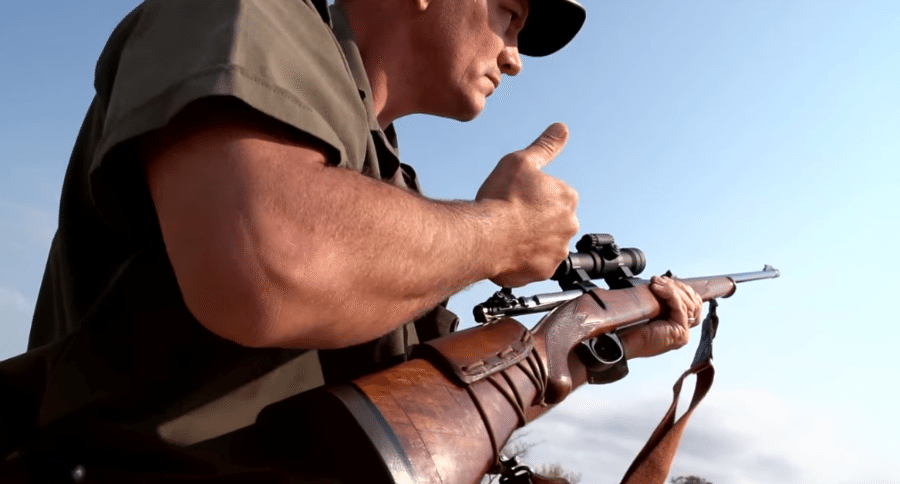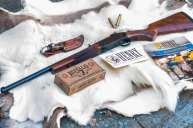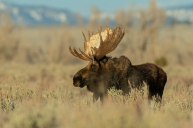Knowing how to reload or rechamber another round when hunting big game can be a big problem if you don't do it right. Here's how to do it correctly.
When confronted with dangerous game, in Africa or anywhere else, the manner in which you shoot and rechamber your rifle can make all the difference in the world according to these Professional Hunters. It could even save your life.
According to Professional Hunter and South Africa Wildlife College instructor Pieter Nel, around 50% of European hunters - and presumably a similar percentage of American hunters who don't hunt in Africa regularly - have problems with reloading or rechambering a second round after the first shot is fired, especially in the heat of the moment when dangerous game may not have gone down with the first shot.
Hear his explanation and his sensible solution.
In the excitement and adrenaline of a shot on a big game animal, many hunters "short stroke" or do not pull the bolt all the way back before chambering another round. This creates a situation where a spent cartridge is not fully ejected, and may be competing with a fresh cartridge to be chambered.
As you might imagine, this wastes precious seconds and shifts the hunter's focus at a critical time, when dangerous game such as elephant or cape buffalo may run or even turn on the hunter.
The other bad habit Nel speaks about is working the bolt while the rifle is still shouldered. The bolt can obscure your vision even further, at a moment when you need to be scanning the animal and surrounding environment for action by other animals.
In short, your field of vision is critical in these couple of seconds, and you don't want anything to take away from that.
So he recommends bringing the rifle down off the shoulder and fully working the bolt there, catching the ejected cartridge in your peripheral vision, and reshouldering the rifle for a second shot, all while scanning the the scene ahead with the wounded animal.
This is a brilliant bit of advice and know-how. And like Nel says, it's a skill that takes practice. But it is experienced advice like this that separates the great hunters from the average ones.
Like what you see here? You can read more great articles by David Smith at his facebook page, Stumpjack Outdoors.
NEXT: Ever See an Elephant Charge an Open Vehicle in the African Bush?




